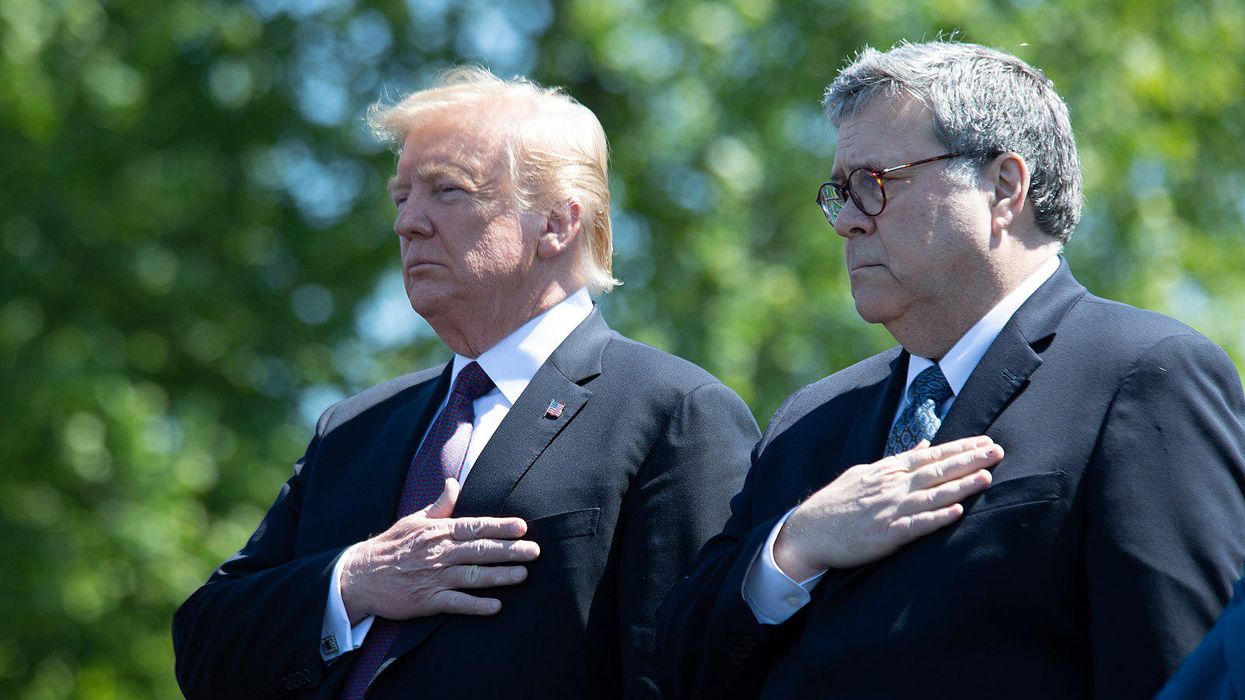Watergate Anniversary Arrives As Trump Scandal Eclipses Nixon
Washington (AFP) - Fifty years since it ignited Washington, the Watergate affair remains a cautionary tale on the threat of untrammeled presidential power and the yardstick against which all other political scandals are judged.
Yet some historians believe its architect, Richard Nixon, risks being displaced as the norm-breaking exemplar of presidential corruption by Donald Trump and the firestorm over his role in the 2021 US Capitol assault.
Nixon's underlying crime was covering up a break-in at the Democratic National Committee headquarters in Washington's Watergate complex to steal documents that might have helped him in an election he would ultimately win by a landslide anyway.
The accusations against Trump -- that he incited a deadly riot to disrupt the peaceful transfer of power as part of a conspiracy to overturn an election -- appear "far more serious," says history professor Michael Green.
Nixon "already has been knocked off his perch, frankly," Green, of the University of Nevada Las Vegas, told AFP.
"One of the ironies is that Nixon did not need to order a break-in to win that election," he said. "And there is no evidence, even with all of the tapes, that there was ever a discussion or thought of overturning the result if it went against him."
Five Watergate burglars were caught red-handed on June 17, 1972 and it quickly emerged that some were linked to the Nixon campaign and the White House.
The ensuing probe eventually opened a Pandora's box of abuses and dirty tricks that included political spying, the forgery of correspondence and even the theft of a pair of shoes to intimidate a Nixon rival.
But the cover-up was initially so successful that Nixon won 49 of the 50 states in his landslide victory over Democrat George McGovern in that year's presidential election.
'The First Seditious President'
The whitewash might have succeeded were it not for the chance discovery in the summer of 1973 that the president had secretly recorded all of his White House meetings.
They included a "smoking gun" tape in which Nixon could be heard ordering that the FBI, which was set to investigate the Watergate break-in, be told to "stay the hell out of this."
Nixon resigned after a delegation of Republican elders, led by ultra-conservative Barry Goldwater, came to the White House in 1974 to tell him he was likely to be impeached and the jig was up.
He was ultimately pardoned but many of his top aides went to jail.
Carl Bernstein and Bob Woodward, the reporters who played a pivotal role in bringing down Nixon, have written a new foreword for their iconic book All the President's Men drawing parallels to Trump.
Their comparison offers an insight into a pair of outsiders who felt besieged by enemies in the media and institutions of state.
But they suggest that Trump's incitement of a mob to march on the Capitol constituted "a deception that exceeded even Nixon's imagination."
"By legal definition this is clearly sedition... thus Trump became the first seditious president in our history," they say.
Analysts interviewed by AFP pointed to the vastly different political and media landscape Nixon and Trump faced when it came to consequences for their actions.
The Goldwater intervention, for example, would be inconceivable among the vast majority of today's serving Republicans, who have stuck by Trump through two impeachments and numerous other controversies.
'Just Another Story'
And while the Senate voted unanimously to set up a cross-party investigative committee on Watergate, the Republicans of the 2020s vetoed a bipartisan commission and punished two members who joined the Democratic-led House committee investigating January 6.
Some 80 million Americans -- considerably more than a third of the population -- tuned in to White House counsel John Dean's televised testimony against Nixon at the Watergate hearings.
Around 20 million -- just six percent of Americans -- watched the blockbuster first hearing put on by the January 6 panel.
For David Greenberg, author of Nixon's Shadow: The History of an Image, the Watergate hearings were "instrumental" in bringing down a president attempting to subvert democracy.
"The difference, however, is that in 1973 and 1974 a great many Republican congressmen and senators loyal to Nixon ended up admitting that he was engaged in criminal activity," he told AFP.
"Today, only a few... have been willing to acknowledge Trump's complicity. Our polarized, partisan environment may prevent the January 6 hearings from achieving all they should."
Meanwhile Trump's impeachment for inciting the insurrection -- and the apparent cover up of almost eight hours of his phone calls on January 6 -- have not significantly eroded his support base.
"At the time of Watergate, Americans were united and trusted their media sources as part of one national conversation. Today that is impossible," former CNN anchor Rick Sanchez told AFP.
If the right-wing cable news outlets that dominate current conservative discourse had been around in the 1970s, argues Sanchez, Watergate would have been "just another story in the 24-hour news cycle of America."












